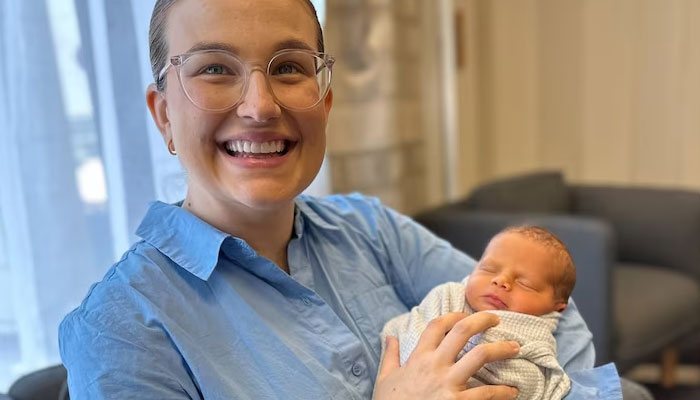Since Kirsty’s surgery, two more women have undergone uterus transplants at the hospital, with one already carrying a pregnancy

A woman has made history by giving birth to Australia’s first baby from a transplanted uterus.
Little Henry Bryant arrived at the Royal Hospital for Women in Sydney, weighing a healthy 2.9 kilograms through a caesarean section on December 15.
Kirsty Bryant, a mother from the NSW Mid North Coast underwent a groundbreaking 16-hour surgery in January to receive a uterus from her mother, Michelle, as part of a pioneering research trial. Just three months later, she found herself pleasantly surprised, carrying a baby after an embryo was implanted into the same womb that once nurtured her.
Doctors Rebecca Deans and Swedish surgeon Mats Brännström led the transplant procedure and continued to provide support until Henry’s birth. Dr Deans expressed immense joy, calling this achievement a pinnacle in her 25 years of collaborative research.
For Kirsty, this journey has been remarkable. After a traumatic experience necessitating an emergency hysterectomy following her first child’s birth, she thought her chances of having another child were slim. However, the successful arrival of Henry has left her grateful to the medical team that made it possible.
Professor Brännström, renowned for performing the world’s first successful uterus transplantation leading to a live birth in Sweden, returned to Australia to witness Henry’s birth.
The implications of this breakthrough extend beyond Kirsty’s joy. Women who lack a uterus due to various reasons, such as congenital absence or surgical removal because of cancer or childbirth complications, now have hope. The Royal Hospital for Women’s trial, approved for six uterine transplant surgeries, offers a window of up to five years for women to conceive after the procedure.
Excitingly, since Kirsty’s surgery, two more women have undergone uterus transplants at the hospital, with one already carrying a pregnancy.
This groundbreaking trial is expected to continue for the next three years, opening doors for many women who dream of experiencing motherhood despite physical challenges.

